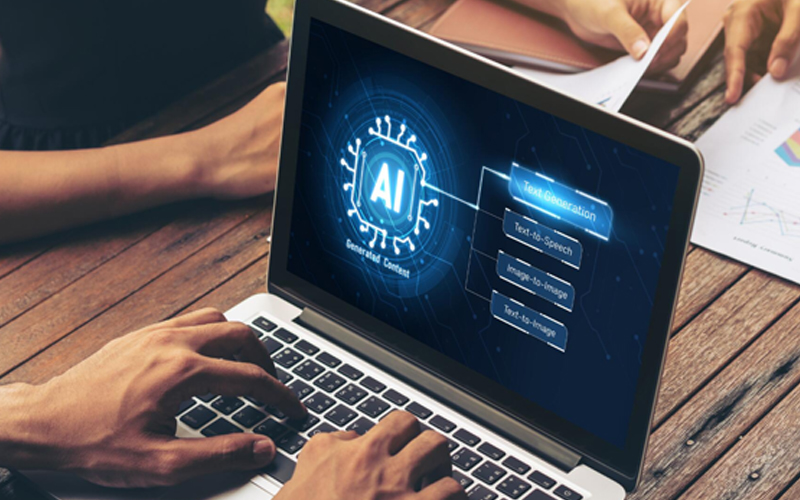Artificial Intelligence (AI) agents are rapidly transforming industries by automating complex tasks, enhancing decision-making, and improving customer experiences. The call for operational efficiency has led enterprises to experiment with and invest in the future of agentic AI more and more with every new capability. So far, agentic AI has shown promise in software development, cyber security, healthcare operations, manufacturing, and business intelligence.
This blog explores the evolving capabilities of AI agents, their impact on various sectors, and the emerging trends shaping their future.
AI so far: Scepticism and wins
Agentic AI is expanding rapidly. The global market is projected to grow from $5.2 billion in 2024 to $196.6 billion by 2034, with a CAGR of 43.8%. By 2028, it is expected that 33% of enterprise software applications will incorporate agentic AI. The early adopters of agentic AI have registered some victories and some debacles on the security, privacy, and ethics fronts.
Automated scans have surged to 36,000 per second, a 16.7% year-over-year increase, leading to over 1.7 billion stolen credentials on the dark web and a 42% rise in credential-based attacks. Only 20% of companies feel well-prepared to defend against AI-powered bot attacks. Agentic AI has proven its cybersecurity effectiveness. Agentic AI can autonomously detect and stop threats in real time, reducing response time from hours to seconds.
Experts have observed that consumer trust in enterprises is eroding, and ethical concerns are prompting caution. In response, Meta aims to automate 90% of its privacy and safety checks using AI. About 72% of executives are willing to forgo the benefits of generative AI due to ethical issues, and 56% are delaying major investments until there are clearer regulations.
AI agents: Evolving capabilities
Below is an overview of the key capabilities and real-world applications of agentic AI across various sectors:
Autonomous decision-making
AI agents can independently assess situations, make decisions, and execute actions without constant human input.
In finance, major financial institutions are leveraging agentic AI to automate workflows and enhance operational efficiency. These AI agents interpret scenarios, adapt to new data, and initiate real-time actions.
Real-time adaptation
AI agents can adjust their behaviour based on real-time data, ensuring optimal performance in dynamic environments.
In healthcare, emerging AI technologies are being employed for remote patient monitoring. These AI systems track patient vitals, such as heart rate and oxygen saturation. When anomalies are detected, alerts are sent to healthcare providers immediately, allowing faster responses and proactive care.
AI in automation for complex tasks
AI agents can manage and execute multi-step processes, coordinating various tasks seamlessly. Agentic AI can analyse sensor data from industrial equipment, predicting and flagging failures. This proactive maintenance approach has led to a 25% reduction in unplanned downtime.
Collaborative intelligence
AI agents can work alongside humans and other AI systems, enhancing overall productivity and decision-making. It is now possible to create autonomous AI agents that handle customer inquiries. Internally, these agents resolve 84% of customer queries, allowing human staff to focus on more complex issues.
Predictive analytics
AI agents can analyse historical and real-time data to forecast future trends and behaviours. Some retail enterprises have employed agentic AI to handle returns and inventory. This predictive capability allows for efficient inventory management and improved customer satisfaction.
Personalisation
AI agents can tailor experiences and recommendations based on individual user data and preferences. Agentic AI is automating complex tasks and improving how businesses connect with their audiences. It enables marketing teams to manage campaigns more efficiently and deliver personalised experiences.
What is on the horizon for agentic AI?
The AI agent trends we see are poised to redefine business operations across all industries. In a little over two years, the industry will see agentic AI make 15% of daily work decisions.
Emerging capabilities
Advanced reasoning: These agents are developing the ability to perform complex reasoning tasks, allowing them to handle more intricate problems autonomously.
Enhanced collaboration: Agentic AI is increasingly capable of collaborating with human teams, providing insights and support in decision-making processes.
Industry impacts
Workforce transformation: As agentic AI takes on more decision-making roles, human workers may shift focus to tasks requiring emotional intelligence, creativity, and strategic oversight.
Job creation: Even as job security is being questioned across various domains, it is expected that new roles will emerge in AI governance, ethics, and oversight.
Operational efficiency: Businesses can expect improved efficiency and scalability as agentic AI handles routine and complex tasks with robotic precision.
Governance and security
Organisations are implementing AI governance frameworks to ensure the ethical and transparent use of emerging agentic AI technologies. They aim to reduce ethical incidents by 40% by 2028.
How can Infosys BPM help you capture the future of agentic AI?
Infosys BPM develops and deploys a range of solutions that leverage the strategic infusion of emerging AI technologies. The AI-first BPM approach creates more agile, intelligent, and customer-focused business models that can adjust to shifting market demands and evolving consumer expectations.








